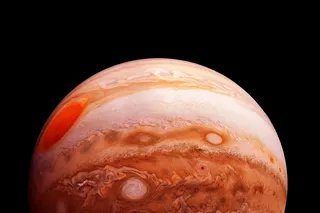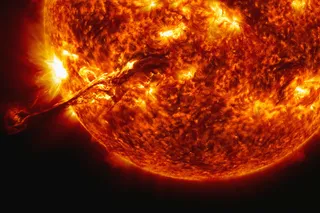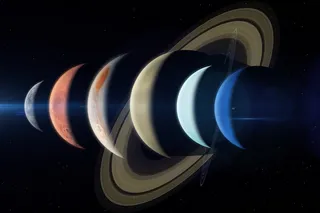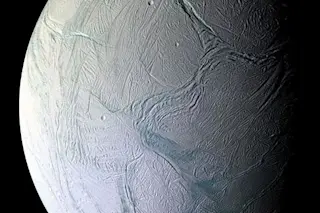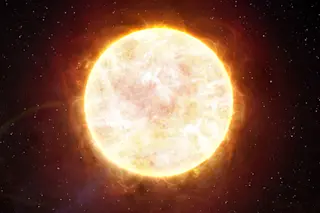Venus, once an ocean world like Earth, is now a hellscape. (Credit: NASA)
NASA
First consider what, exactly, you'd be doing here.
Like a Smurf with a bass voice, according to Tim Leighton, a professor of acoustics at University of Southampton who has made it his mission to figure this kind of thing out, using physics and math combined with data about otherworldly atmospheres. Venus's atmosphere is much denser than ours, so vocal cords would vibrate more slowly there, yielding a lower voice---the opposite of what happens when you inhale helium. The speed of sound, though, is a lot faster on Venus than it is here, Leighton explains in a press release
. He says that this can mess with how big we imagine the speaker to be: "This tricks the way our brain interprets the size of a speaker (presumably an evolutionary trait that allowed our ancestors to work ...



